International Women's Day - featuring five PathWest women
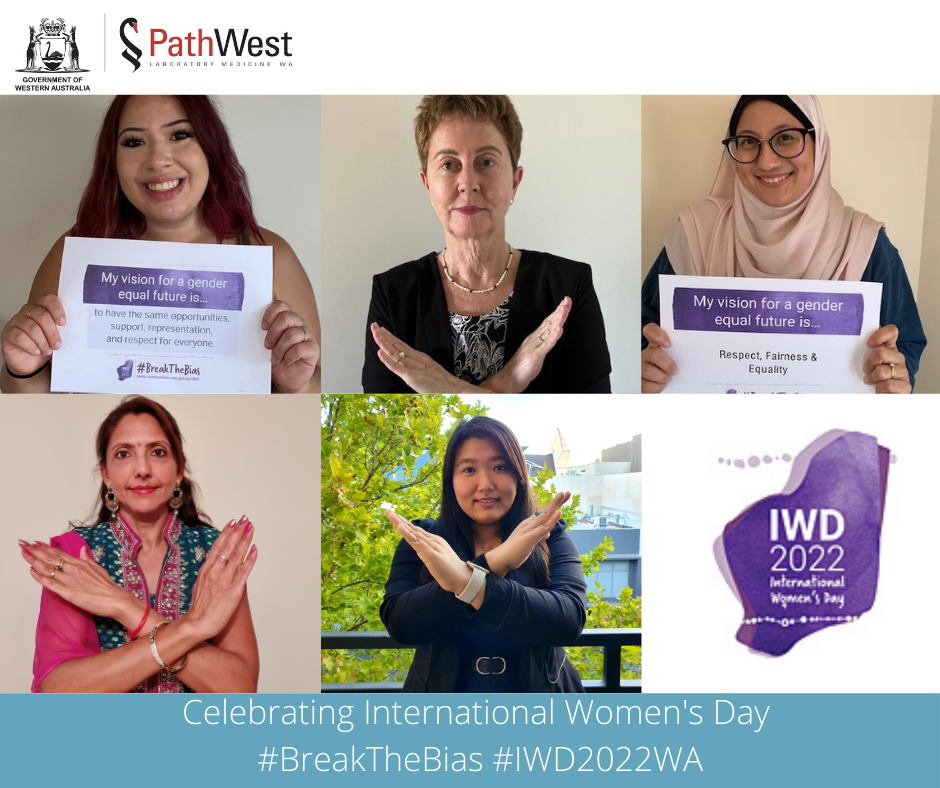
Today is International Women’s Day (IWD) and a great day to celebrate the women of PathWest and the progress we have made towards gender equality. However, we also need to acknowledge we still have a way to go and this day assists in creating awareness of #breakthebias, the theme of this year’s campaign.
Read on to see the stories of five strong PathWest women and their vision for gender equality.
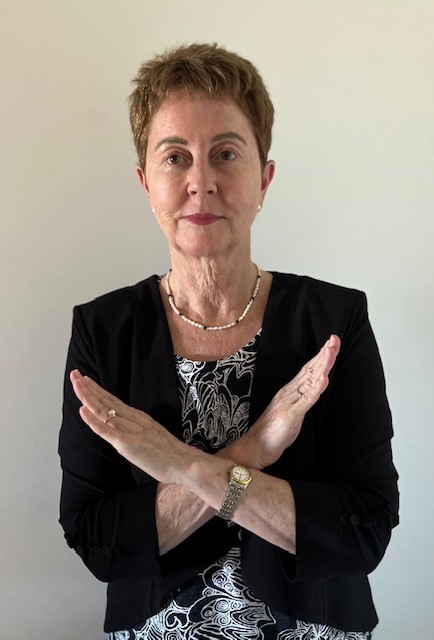 Angie Paskevicius, Board Chair
Angie Paskevicius, Board Chair
Do you believe men and women are treated equally?
I don’t. However, in my career and while growing up I am fortunate that there have been very few occasions when I have personally experienced inequality as a woman. As an adult, there are examples in my personal life where I have not been treated equally as a woman.
What would you like to see changed for women in Australia?
- Greater representation of women at senior and executive leadership levels in the workplace, on boards and in parliament.
- Equal pay for equal work. Reducing the gender pay gap.
- Greater economic independence and participation for women.
- Greater access to education.
- A focus on the prevention of violence against women.
It is International Women’s Day – it is all about embracing different cultures – what culture do you most identify with?
I am Australian, but I also identify with my father’s Lithuanian culture and his story about the challenges he faced coming to Australia as a young man in his 20s, just as WWII started in Europe.
How has that culture impacted you as a woman, and how you live and work in Australia?
Firstly, I am Australian and I have been fortunate to experience the freedoms and privileges of living and working in Australia as a woman. I was brought up as Australian as my mother was Australian and my father was naturalised as an Australian citizen after he moved to live in Australia.
My vision for a gender equal future is….
- Equal access to resources and opportunities for all.
- A safe, healthy and equal society.
Roma Wadhwa, Technician, Biochemistry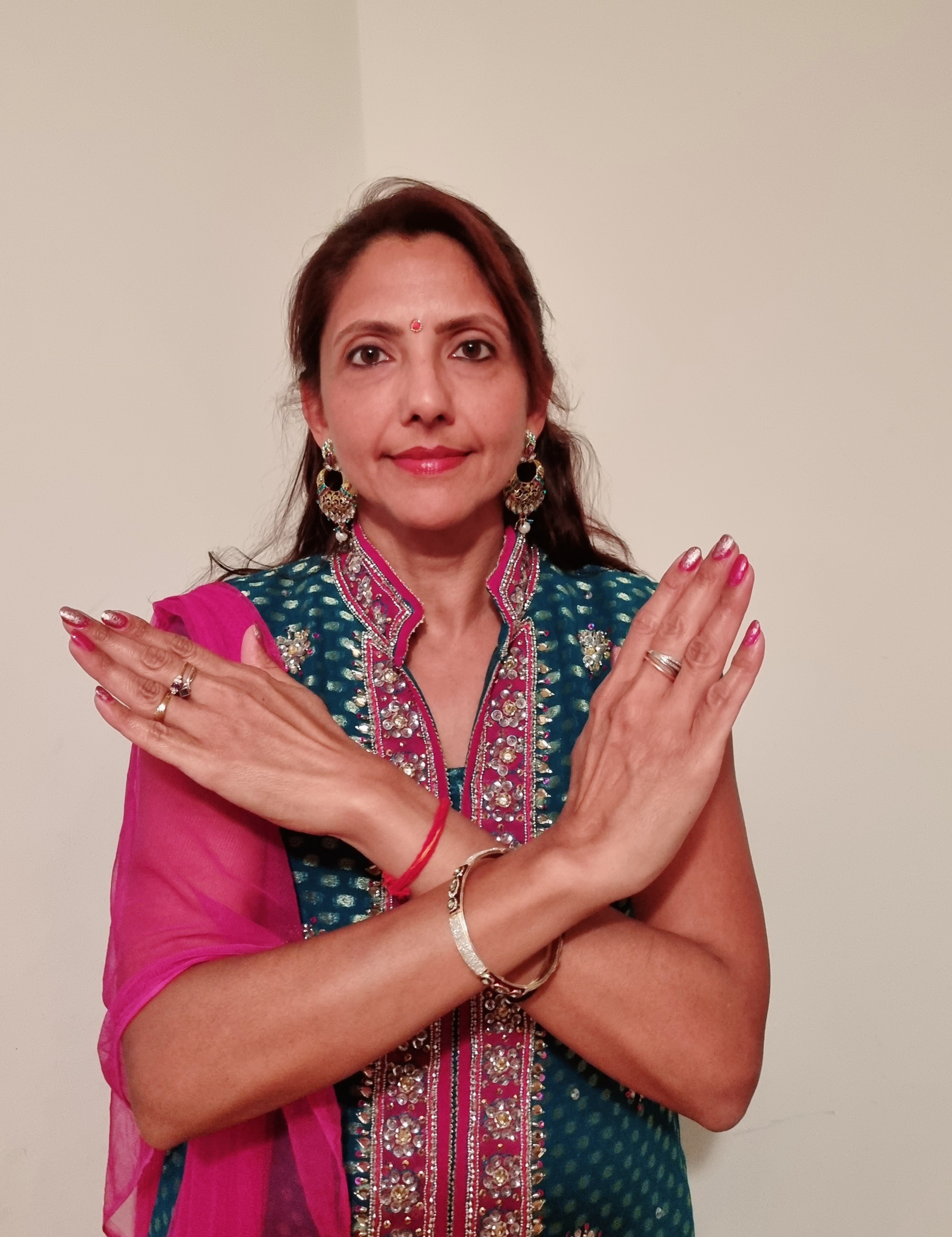
Do you believe men and women are treated equally?
No I do not believe men and women are treated equally, particularly in migrant communities. There is patriarchal hierarchy, gender inequality, gender roles, inheritance importance given more to the sons as opposed to the daughters.
What would you like to see changed for women in Australia?
Women from migrant communities need to breakout from generational expectation and learn to lead their own lives. When there are more women in the workforce from ethnic backgrounds this will encourage change. Ethnic women need to put their desires and ambitions first. Cooking, household chores should be shared evenly. Children are a family responsibility, not just a female responsibility.
It is International Women’s Day – it is all about embracing different cultures – what culture do you most identify with?
I am from an Indian background. My religion being Hindu, I have the faith and privilege to practice my culture here in Australia. My Kenyan ethnicity has enriched multilingual ability and multi-cultural foods, and heritage.
How has that culture impacted you as a woman, and how you live and work in Australia?
I am motivated to be self-reliant as opposed to dependent. I am comfortable inhabiting different cultures, embracing changes, and accepting the Australian culture. I feel grateful to be a part of a multicultural country and acknowledge different traditions and cultures and food.
My vision for a gender equal future is….
- Parental leave is evenly distributed, by decreasing stigma for fathers taking leave.
- More migrant women in the workforce and more representation in sporting codes e.g. footy. This can be aided when there is encouragement from the older generation of migrant parents.
- We need to build confidence amongst ethnic women.
Marisol Canning, Aboriginal Cadet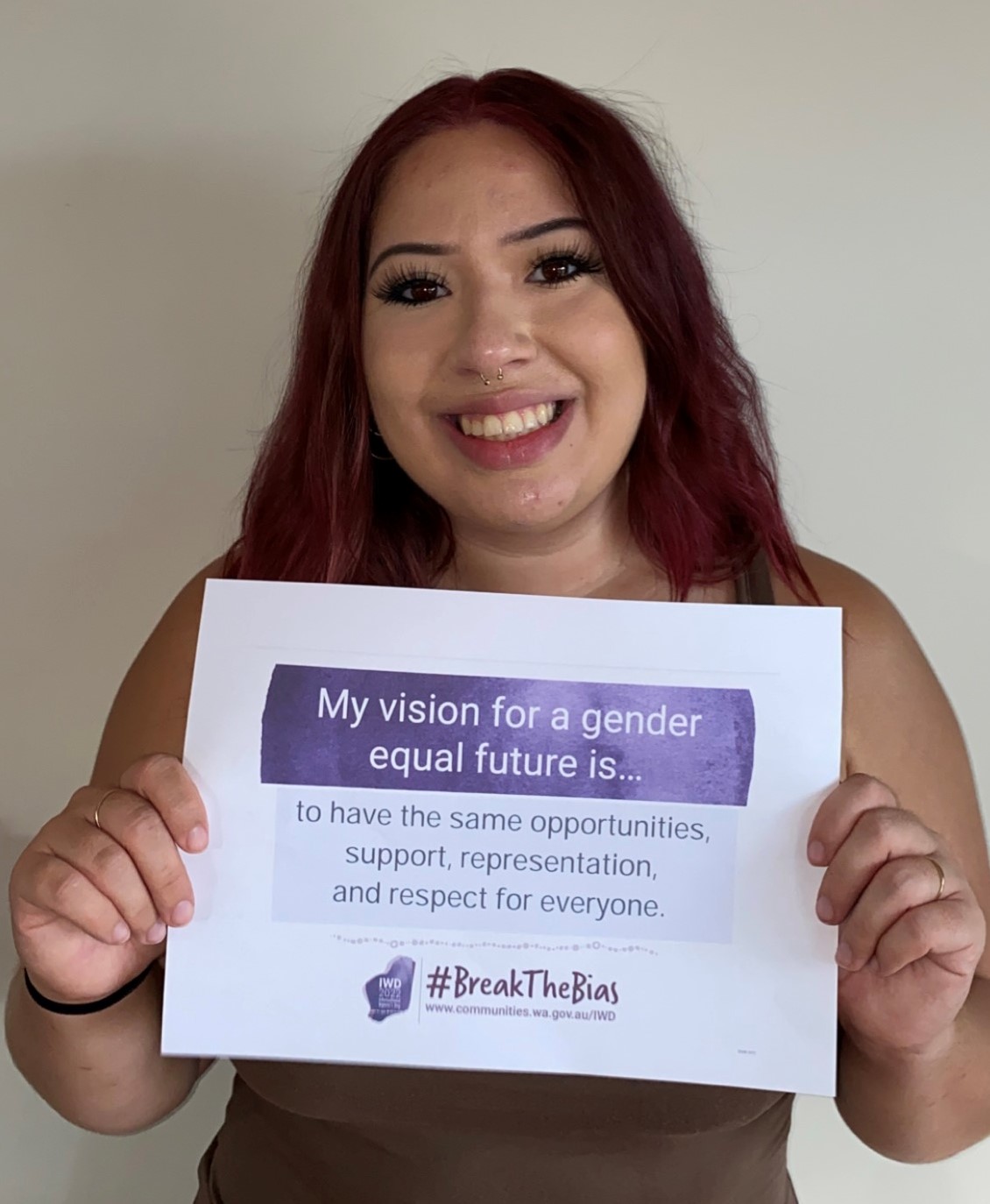
Do you believe men and women are treated equally?
I believe that women and men are not treated equally in various aspects such as workplace discrimination, the gender gap in pay, respect, education and more. I believe we have improved drastically and are on the right path to having gender equality, however we are not there yet.
What would you like to see changed for women in Australia?
I would like to see that we remove the gap in pay we have between men and women in most workplaces. Considering hiring people based off their skills and performance regardless of gender and accommodating for the needs of women in their workplace.
It is International Women’s Day – it is all about embracing different cultures – what culture do you most identify with?
I am a proud Indigenous Australian and Peruvian woman.
How has that culture impacted you as a woman, and how you live and work in Australia?
My culture is a major part of my identity and reflects who I am as an individual, it’s how I have grown up, it’s my language, it’s my country and it’s my community/family. I feel that my workplace is a very respectful and supportive place to embody my cultural beliefs and express my identity.
My vision for a gender equal future is….
To have the same opportunities, support, representation, and respect for everyone.
Farhanah Ibrahim, Acting Senior Medical Scientist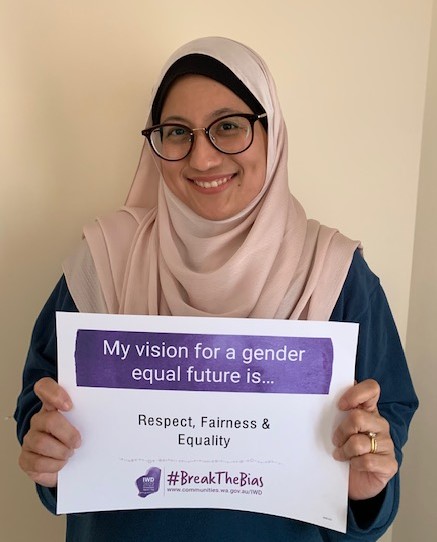
Do you believe men and women are treated equally?
Unfortunately, I do not think men and women are treated equally, even in this day and age.
What would you like to see changed for women in Australia?
I would like to see women treated with respect, fairness and are given equal opportunity, based on their education, skills and abilities.
It is International Women’s Day – it is all about embracing different cultures – what culture do you most identify with?
I mostly identify myself culturally as a Malay (from Singapore).
How has that culture impacted you as a woman, and how you live and work in Australia?
As a Muslim woman wearing the hijab, I am judged first with how I look. My ability to converse, work and my qualifications are questioned by my appearance. It has made living in Australia a little more challenging, and I find I have to work harder to get myself to where I need to be.
I am fortunate to work in an organisation that embraces cultural diversity.
My vision for a gender equal future is….
Respect, fairness and equality.
Annika Htun, Finance & Business Officer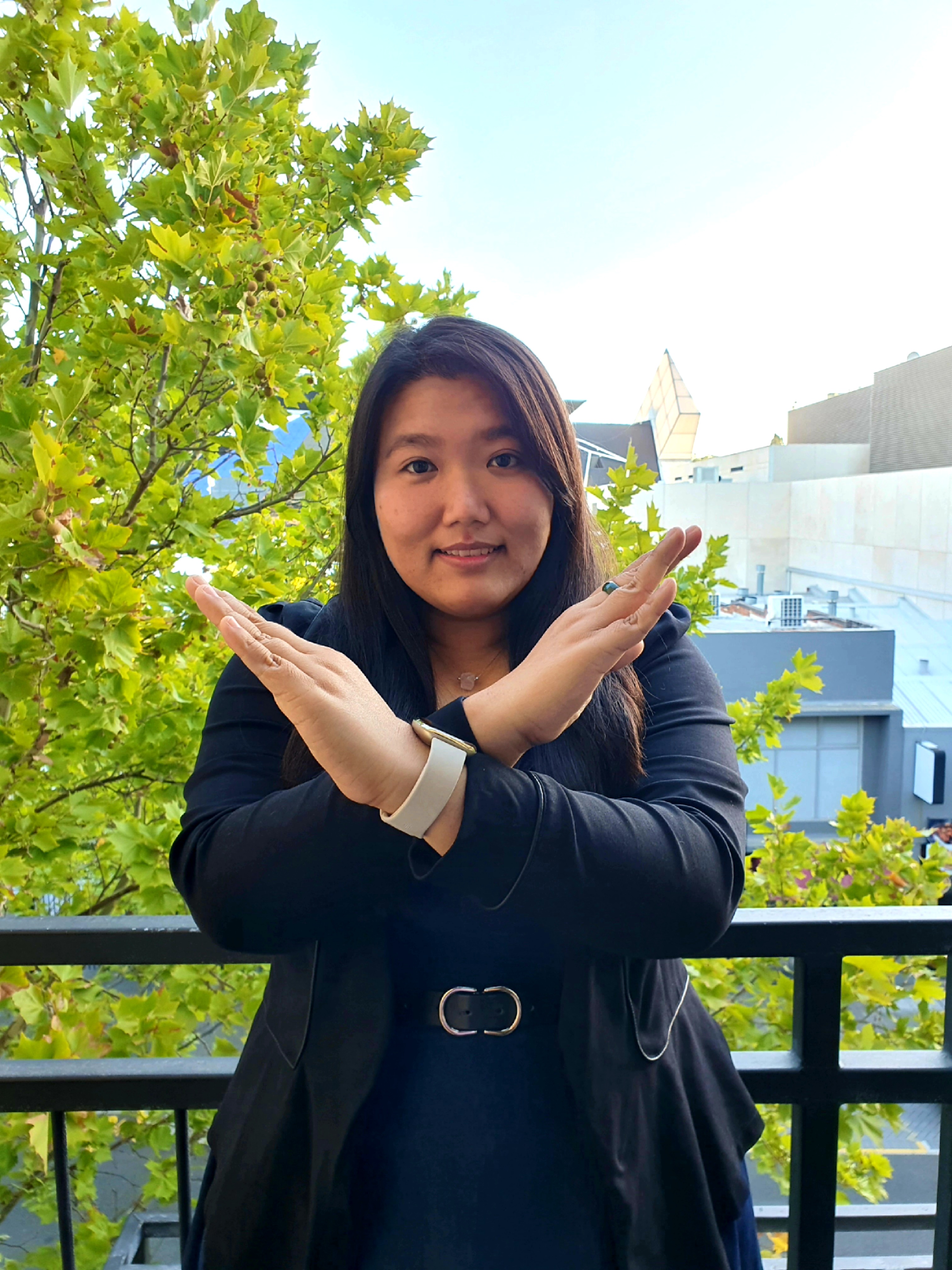
Do you believe men and women are treated equally?
No. However, I believe that we are slowly moving in the right direction, and Australia is one of the leading countries creating opportunities to enable gender equality.
What would you like to see changed for women in Australia?
Compared to many parts of the world, Australia is one of the leading countries that enable high gender equality opportunities. However, we still have gender bias mentality and glass ceilings happening in many industries, boards, leadership and management roles within Australia. I would like to see bias-free, empowering and supported opportunities being created and provided for women in workforce.
It is International Women’s Day – it is all about embracing different cultures – what culture do you most identify with?
The two cultures that I embrace and identify myself most with would be my native culture that I was born and raised into, the Myanmar (Burmese) culture, and the culture of the country where I have lived half of my life now, the Australian culture.
How has that culture impacted you as a woman, and how you live and work in Australia?
Even though Burmese culture can still be a male dominant culture, I was lucky enough to be surrounded by a forward-thinking family, relatives, friends and community that cultivated and supported me to be strong, confident and independent young lady growing up. When I moved to Australia, I have been lucky enough to engage into study, work and social environments that are very enabling, inclusive and supportive for my gender, background and beliefs.
However, I have also seen unconscious gender bias and glass ceilings still happening in many areas within Australia. Through my not-for-profit involvements, I am working towards enabling culturally diverse women with opportunities and social advancements in education, work and livelihoods.
My vision for a gender equal future is….
I believe that all genders should be treated equally with respect, honour, kindness, understanding and empathy. Regardless of our genders, we all can equally be smart, capable, strong, inspirational, and impactful. At the same time, we will still have moments where we feel vulnerable, hurt, and struggle through emotions in the face of life challenges. We are all equally humans at the end of the day.
I would love to walk towards a future where all genders are respected, accepted and appreciated. Let’s break the biases. Let’s create a future with inclusion and supported opportunities which enable individual’s decisions and freedom of choice.
Thanks to all these wonderful PathWest women for sharing their stories as they encourage you all to reflect about the contribution of women in Australia and share the message of gender equality and diversity.

